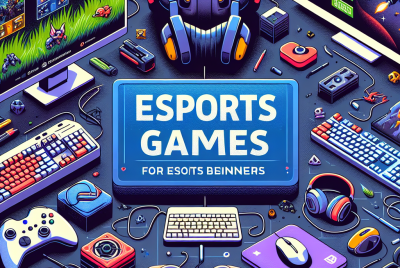PlayStation 5 vs Xbox Series X: A Comprehensive Review
PlayStation 5 vs. Xbox Series X: A Comprehensive Review
Design and Build Quality
The PlayStation 5 (PS5) and Xbox Series X have made significant statements with their distinct designs. The PS5 boasts a futuristic look with sharp curves and a striking white-and-black color scheme, highlighted by LED accents. Its larger size may require a thoughtful approach to placement in entertainment units, but the design is undeniably eye-catching.
In contrast, the Xbox Series X features a more minimalist and compact design resembling a small tower. The matte black finish projects a subtle yet sophisticated aesthetic, integrating seamlessly into most home setups. While the PS5’s design wins points for boldness, the Xbox Series X provides an understated elegance.
Performance and Hardware Specifications
Both consoles are powered by custom AMD processors, ensuring high performance. The PS5 features an 8-core Zen 2 CPU clocked at 3.5 GHz and a custom AMD RDNA 2 GPU with 10.28 teraflops of processing power. In comparison, the Xbox Series X has an 8-core Zen 2 CPU running at 3.8 GHz and a slightly more powerful GPU producing 12 teraflops.
Both systems support ray tracing, 4K gaming at 60 FPS, and up to 120 FPS in select titles. However, the raw performance of the Xbox Series X may provide a slight edge in performance-heavy scenarios, enabling it to deliver smoother frame rates in some games.
Storage Solutions
The PS5 comes equipped with an ultra-fast custom SSD that provides read speeds up to 5.5 GB/s. This SSD allows for rapid load times, making gameplay transitions seamless. The storage capacity is 825 GB, but only about 667 GB is usable after system files. Players hungry for more storage can expand it via NVMe SSDs compatible with the console’s specifications.
Conversely, the Xbox Series X packs a 1 TB SSD that provides similar impressive speeds. The additional storage is a clear advantage for players who frequently download large titles. Microsoft offers proprietary expansion cards to seamlessly increase storage, although these come at a premium price.
Game Library and Exclusives
When it comes to game libraries, both consoles offer unique experiences tailored to different gaming preferences. The PS5 has exclusive titles such as Demon’s Souls, Ratchet & Clank: Rift Apart, and the much-anticipated Horizon Forbidden West. Sony’s focus on immersive single-player narratives has garnered a strong fan base.
The Xbox Series X counters with its Game Pass subscription service, providing access to a vast library of games, including notable titles like Halo Infinite, Forza Horizon 5, and upcoming offerings like Starfield. Game Pass allows players to enjoy a diverse range of genres without the commitment of purchasing each title, appealing to both casual and hardcore gamers.
Backward Compatibility
Microsoft’s Xbox Series X shines in backward compatibility, allowing players to access a wide range of Xbox One, Xbox 360, and original Xbox games. This feature enhances the value of Series X, as gamers can revisit classic titles without the need for a previous console.
On the other hand, the PS5 is backward compatible with the vast majority of PS4 titles but lacks support for earlier PlayStation generations. This may be a drawback for players who wish to enjoy their PS1, PS2, or PS3 collections, making the Xbox Series X more appealing in this regard.
User Interface and Experience
Both systems feature distinctive user interfaces. The PS5’s UI focuses on quick access to games and features, presenting a clean and modern look. The Control Center, accessible by pressing the PS button on the controller, allows users to manage downloads, chat with friends, and control music without interrupting gameplay.
Conversely, the Xbox Series X employs the familiar Xbox Guide that prioritizes quick access to games and other applications. The integration of Game Pass into the dashboard offers recommendations and easy access to new titles. The Xbox interface feels more tailored to multiplayer and online gaming, which may appeal to a broad audience.
Controllers
The DualSense controller of the PS5 is a significant evolution in terms of gaming experience. It incorporates haptic feedback and adaptive triggers, allowing for a more immersive interaction with games. The ability to feel varying levels of tension in triggers adds depth to gameplay, enhancing the emotional connection players feel with their games.
On the flip side, the Xbox Series X controller remains a refinement of its predecessor. While it doesn’t introduce groundbreaking features like haptic feedback, it retains reliability and comfort, which many gamers appreciate. It also features a share button, allowing for effortless capture and sharing of gameplay moments.
Online Services
Both consoles offer robust online services. PlayStation Plus combines multiplayer capabilities with free monthly games and exclusive discounts. Additionally, the PS Plus Collection provides a selection of PS4 classics for PS5 members, adding value to the subscription.
Xbox Live Gold offers similar online multiplayer features, while Xbox Game Pass enhances the value further by providing access to a library of titles, including newer releases. Microsoft’s commitment to delivering cloud gaming capabilities through Game Pass Ultimate is a game-changer, allowing players to play on various devices beyond the console.
Virtual Reality and Innovation
Sony’s commitment to virtual reality (VR) is evident with the upcoming PSVR 2, which promises to deliver an immersive gaming experience reserved for PS5 users. With advancements in technology and a growing library of VR titles, PlayStation continues exploring new realms of gaming.
Microsoft, focusing more on cloud gaming and cross-platform play, currently lacks a dedicated VR solution for the Xbox Series X. However, this opens the door for innovation within the platform, prioritizing broader gaming experiences over specific VR content.
Price and Availability
Pricing strategies can influence consumer decisions significantly. The PS5 is available in two variants: the standard edition with a disc drive priced at around $499 and a digital edition at roughly $399. The Xbox Series X also retails for about $499, with the more budget-friendly Xbox Series S available at around $299, catering to gamers seeking an entry-level next-gen experience.
Availability fluctuates based on demand and supply chain factors, impacting purchasing decisions. Both consoles remain popular, leading to frequent stock shortages at retailers.
Conclusion
The PlayStation 5 and Xbox Series X each bring unique strengths to the table. The PS5 excels in exclusive titles, innovative controller features, and VR potential, attracting fans of single-player experiences. Conversely, the Xbox Series X offers robust backward compatibility, a powerful Game Pass service, and superior performance in certain scenarios, appealing to a more diverse gaming audience. Ultimately, both consoles provide an enjoyable gaming experience, catering to different preferences and gaming styles.




